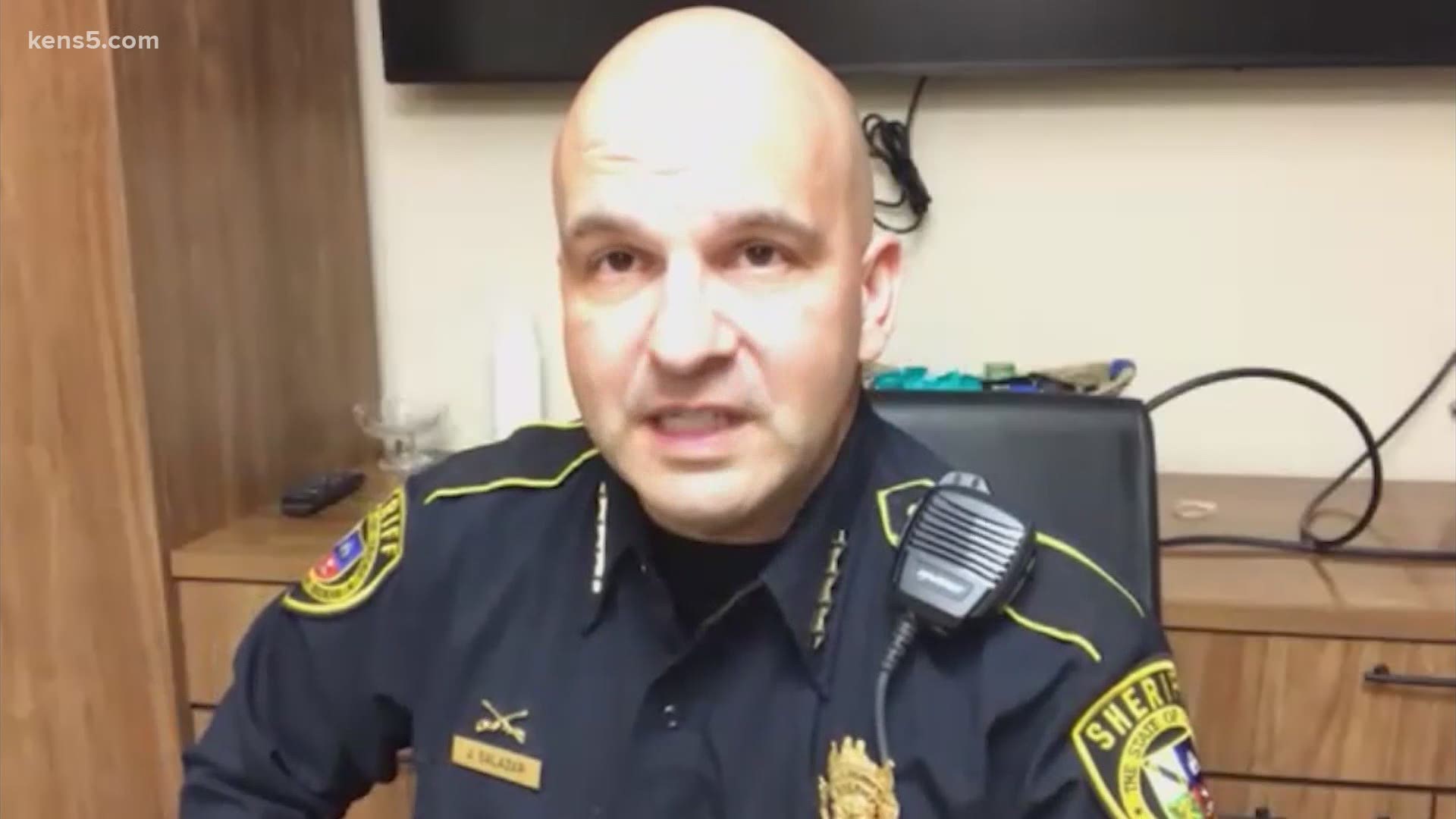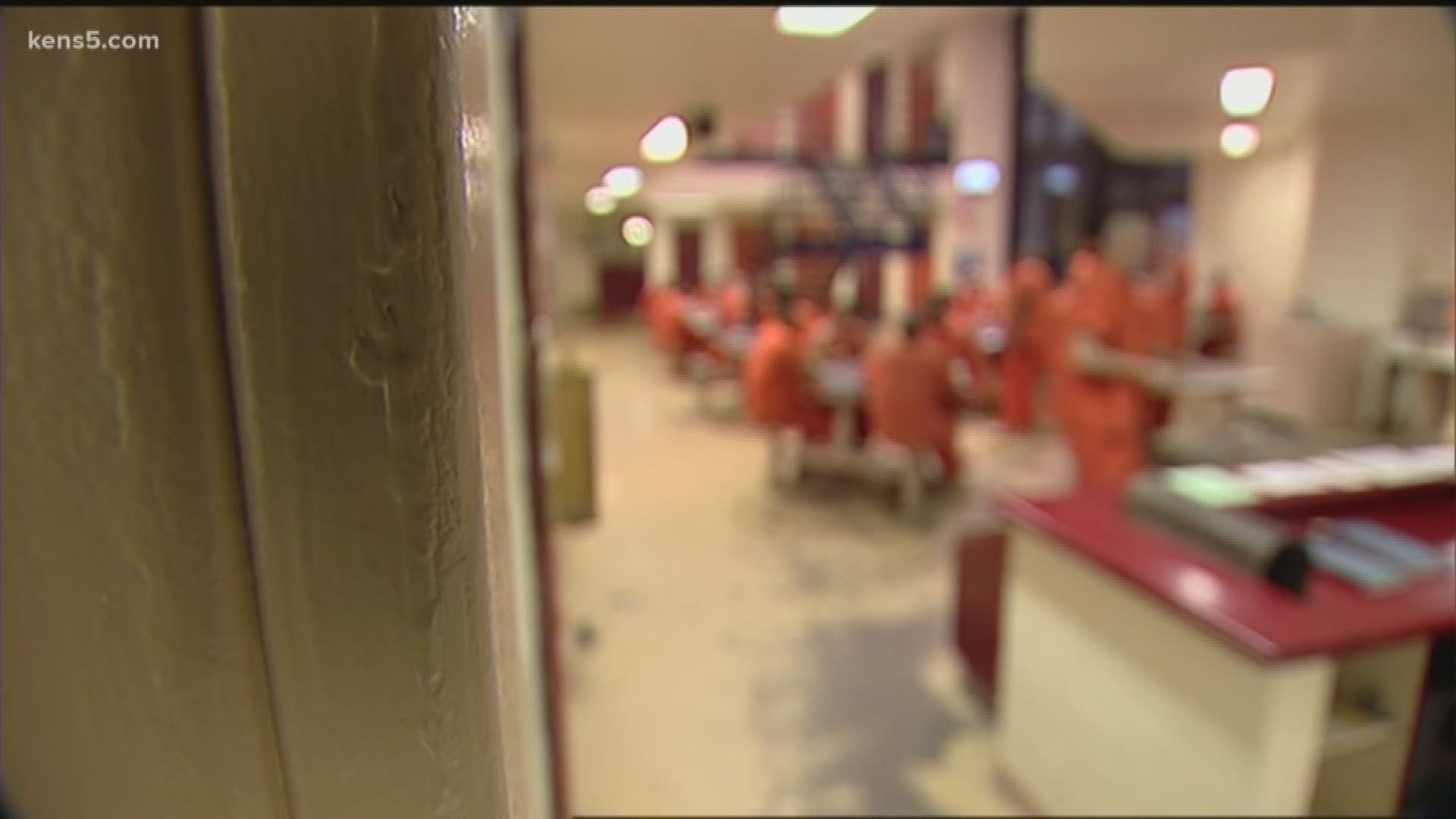SAN ANTONIO — At the start of the pandemic, Bexar County leaders worked to drastically reduce the jail population to mitigate the potential spread of the novel coronavirus. Now, as the jail population continues to increase, county leaders are asking Gov. Greg Abbott to rethink an executive order they say has stripped judges of their discretion.
Abbott's Executive Order No. 13 aimed to stop counties from releasing potentially dangerous inmates on personal recognizance bonds. But Sheriff Javier Salazar said the order takes it too far, preventing judges from letting anyone previously convicted of an offense that involved violence or threats of violence, or anyone presently arrested amid allegations of violence, from being released from jail for free.
"We're asking for some relief from this order that, quite frankly, I don't see how it's done anything to increase public safety one bit," Salazar said, remarking that the policy targets individuals who can't pay, rather than their actual danger to the community.
Salazar said that, in one incident, the order prevented a prisoner who had been convicted of making a terroristic threat nearly a decade ago from receiving a personal bond. He said the individual's current charge wasn't violent in nature.
"That's one more person that's preventing us from from doing social distancing the way we need to in the jail," he said. "It's one more person that's exacerbating conditions that are conducive to COVID-19. And quite frankly, it's another person that's costing Bexar County taxpayers about $60 a day over the time span of two months for something that she could have gotten out of jail the very next day for."
Meanwhile, he said, the law allows for dangerous individuals who can afford bail to be released.
"Who is more dangerous?" Salazar questioned. "The young lady that made a mistake 10 years ago that the crime may have not even gone anywhere, but she doesn't have two dimes in her pocket to rub together? Or this person who assaulted a family member but has the financial means to get themselves out? How is keeping this person in jail serving the public interest or public safety?"
Mike Lozito, the director of Bexar County's Office of Criminal Justice, said he's also seen the order's impact in the recent arrest of a woman who pushed one of her parents during a bipolar episode.
"She had never been arrested in her life," Lozito said. "Never, never had an offense in her life. She has a mental disorder. So now, with the governor's order, this person is not eligible to get out (on a personal recognizance bond)."
Lozito said county officials are brainstorming ways to make easier for those in similar predicaments to be released, adding that judges are stetting low bonds for some inmates. But, even as judges set those low bonds, Lozito said the cost is often still too much for inmates or their families.
The Bexar County Sheriff's Office said Tuesday that, aside from anecdotal examples, it was unable to provide the names or identification numbers of inmates considered eligible for personal bonds. However, they said nearly 650 people who would be eligible to be considered for a personal bond are disqualified by the governor's order.
Lozito said not all of the more-than-600 inmates would get a personal bond. But he estimates approximately 400 of them like would.
Various figures have been thrown around as to how much it costs to keep such individuals in custody. Salazar estimated the cost is roughly $38,000 a day.
County officials sent the letter to Abbott last Friday, and had not yet heard back as of Tuesday. Lozito said the governor tends to be responsive with requests for consideration.
"Really, what that order did was it took away discretion from the judges because the judges, that's what they do," Lozito said. "They can look at the circumstances."
With jury trials suspended and the state prison system slowing the rate at which it picks up prisoners, Salazar said the jail population is now close to 3,800 inmates.
"We're sitting on about a thousand inmates that we shouldn't be sitting on," Salazar said, adding the 600 inmates eligible to be considered for a personal bond and the 400 awaiting transfer to state prisons.
The population has not only increased the risk of transmission of COVID-19, Lozito said; it's also subjected deputies to long shifts. In many cases, they're working three eight-hour overtime shifts a week due to a staffing shortage and growing inmate population.
"You factor in that 100 new people are coming into the jail every day and 100 people are leaving the jail every day," Salazar said. "Well, not only are you now incubating this illness, you're amplifying it on to the community. And it's really not helping public safety one bit. "


